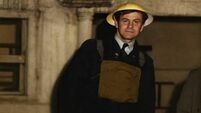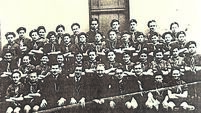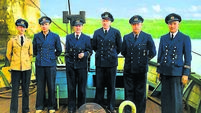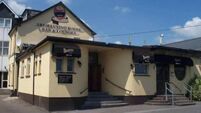Throwback Thursday: Scrambling motorbike races round the Glen, in Cork city
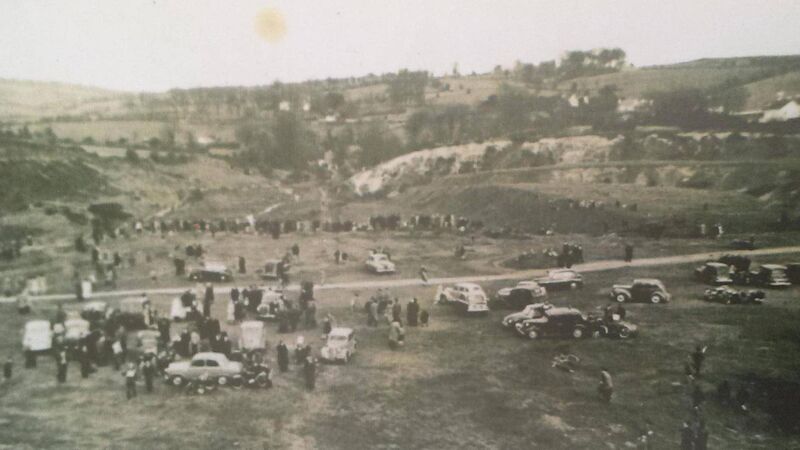
A motorbike scramble held in the Glen in 1950.
THAT story we ran some time back in Throwback Thursday about Des Barry and his experience of breaking his leg on the rugby field at Musgrave Park in childhood, only to be carried out on coal sacks, is still bringing in the correspondence!
Des rang me the other day to ask if we realised that EchoLive.ie had reached Poland? Well, we didn’t, Des, but we’re not surprised. Wherever in the world there are Corkonian expats, you will be sure to find them eagerly awaiting Throwback Thursday!
Apparently, a nephew out there had read the account, and immediately contacted his dad in Cork (Des’s brother) to ask if he remembered the incident (he didn’t!)
You may remember that we have previously heard from India, and frequently from the UK. Truly international we are at the Echo.
Do tell us if you come across examples of the Throwback Thursday spread across the globe!
Meanwhile, Jerry Holt, who has frequently enlivened us with his tales of working for CIE back in the day, has contacted us again, this time concerning the old ‘dry’ day before Easter:
“Last week, the stories about Good Friday drinking reminded me of the time I was put on the door of the bar in Kent Station with a clipper, to punch the tickets of the many ‘bona fide’ travellers who had suddenly found an urgent reason to travel to Mallow on this particular day.
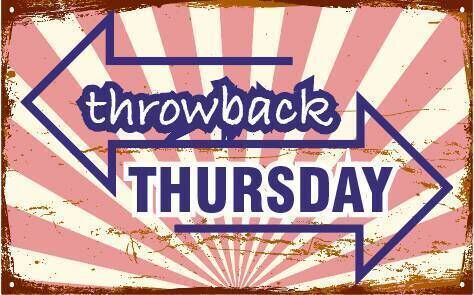
“Strangely enough, most of these dedicated travellers/drinkers abandoned the imperative to get to Mallow after a few pints, and were quite happy to stay where they were!”
Yes, of course, genuine travellers could always legally claim the right to a drink. Even local hotels would have to oblige guests who were staying, whether it was Good Friday or Christmas. As we saw with that tale from Pat Fitzgerald a couple of weeks ago, when he and his friends surreptitiously joined a group of visiting Welsh rugby players in the Victoria Hotel, changing their accents as carefully as possible to fool the staff. That lasted until the mellowing effects of the pint caused the Welsh lilt to slip and the unmistakeable Corkonian one to come through.
Wasn’t there a movie back in the 1950s called The Titfield Thunderbolt, where a local village, threatened with a Beeching railway closure, and thus the demise of their regular tipple en route to London, started their own service, using a vintage locomotive from their museum?
Wonder if that classic old monster, which has stood in Kent Station for as long as any of us can remember, would enjoy a run out on the line to Cobh again? Just a thought…
What really sparked a flood of memories, though, was the topic of Goulding’s Glen, a playground for generations, which we featured last week, and here Jerry Holt had memories to share there too.
“Regarding the Glen, I used to hack down the road from Whites Cross with a few others on Rosie the mare, hired from Coleman Hennessey at Pinegrove. One day, I even tethered the horse on the railings and ran in to Dunnes Ballyvolane for an urgent purchase... talk about the Wild West!”
Love that idea, Jerry, of all of you piling on to the old grey mare and heading for your happy hunting ground. It says much for the rural way of life that still existed around the city.
And, coincidentally, my brother, Tommy also shared memories of everybody piling on to one mode of transport - albeit slightly more modern - with his pals.
“We used to take a motorbike up there, Eddie, myself, and another lad we met up there with his dog - when I was far too young to ride a motorbike yet.
“I bought it from McCarthy’s motorcycle shop, just across from our place, the Book Mart in Washington Street, about 1958. I paid all of £5 for it. My mother, bless her, lent me the money!
“I can still remember its number: ZB8401. It was a one and a quarter horsepower - a James.”

So, not exactly one of the superpower, supermodel monsters we see roaring around our roads today? “Well no, but it went, it was great fun.”
Because he didn’t have a licence yet, Tommy was careful enough not to risk the wrath of the authorities (they still had some power to instil fear back then) by actually riding it up to the Glen.
Instead, he and his pals pushed it laboriously all the way from Summerhill through St Luke’s and Dillon’s Cross and down into the Glen. Whereupon they would spend joyous hours riding up and down the steep slopes.
“The three of us would clamber on, and sometimes the dog too! He’d be held on by the last fella at the back.”
The seat on the motorbike was fashioned from the armrest of an old Kerrigan Vauxhall saloon car, which hadn’t really been fit for anything but scrap after our family had finished with it.
“When we were on the hop from the Tech or school, we would go up to the Glen and hang around there,” reveals Tommy.
“When you’re walking into the Glen down that lane from Dillon’s Cross, you came - or you did, then - to the area known as the Black Patch, where football was played.
“There was a pond, quite a wide one, probably part of the old mill workings, where soldiers used to come down from Collins Barracks for a swim. We would always try to reach right across the pond to the other side with catapults, but could never quite manage it. So we thought about it, and then made slings. We knew about those from the story of David and Goliath.
“Now those did make it across. Cotton sheeting for the sling itself, but leather for where the stone went. We used to get that leather from the tongue of an old shoe. And those slings really did the trick. They could be two feet long, and that gave you the extra power to send the stone flying across.”
When getting ‘of the age’, he observes circumspectly, they would bring their lady friends up there. “There were a few I knew down around Mount Farran, and they wouild come up the road by the old prison to the Glen to meet us.”
In much younger days, Tommy reminds me, our father (the inimitable Joey Kerrigan) taught us all to cycle in the Glen. So he did, Tommy, so he did! I had forgotten that, but it comes back to me now. I got this small bike one Christmas (second-hand of course, from George Harding’s on South Terrace) and on St Stephen’s Day up we went for my first lesson. Pa put me on the bike, gave me a push, and off I went.
Tommy remembers having a fall in one of his own early cycling lessons, in the mid 1950s. “I still have a blue patch on my knee where the cinders went in!”
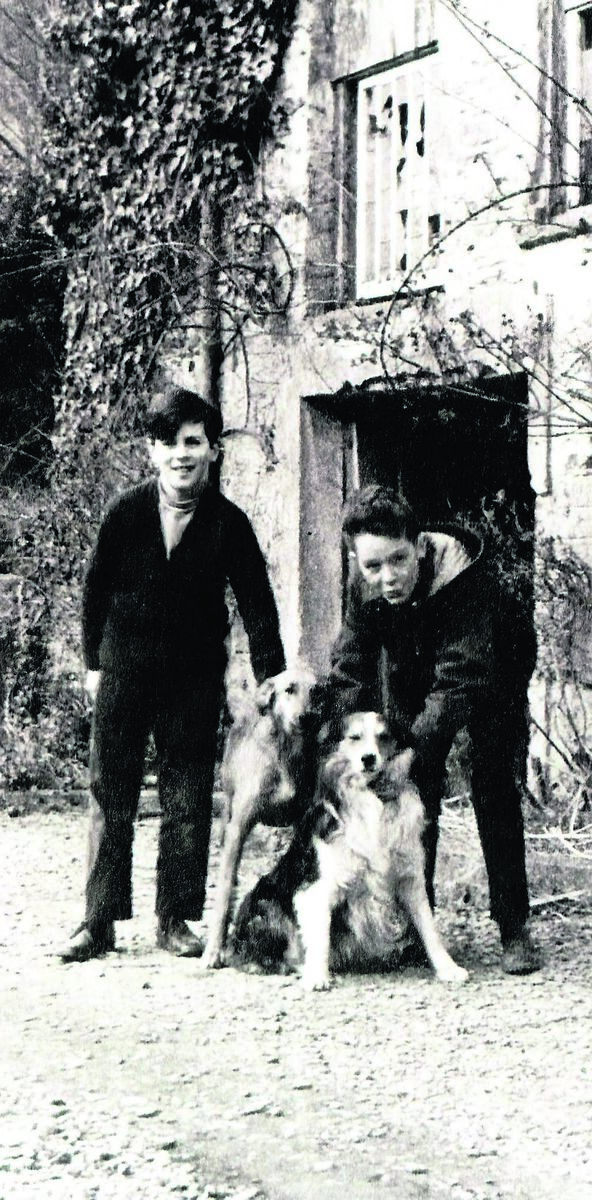
Gerard Martin O’Brien (Faeries, Felons, And Fine Gentlemen, Blue Horse Press) recalls the Munster Motor Cycle Club holding a scramble in the Glen around 1956, so I checked this with Tommy.
“They did. Now was it 1956? Yes, Tommy Foley was riding a James at that event, and he got that in 1956.”
What a memory. If you have any queries about old motorbikes, Tommy’s your man!
In a place so redolent with history, are there any records of ghosts being spotted in the Glen?
Well, Gerard Martin O’Brien points out that the lower end of the area, opposite Goulding’s factory, was known as Glounapooka from earliest times. The Glen of the Pouka or the fairy horse? That mischevious Otherworld creature who is known to toss unwary travellers up on his back and gallop off to drop them somewhere far away, preferably in a bog on the other side of the mountains?
Gerard himself never caught sight of the Pouka, but nevertheless felt very uneasy wandering around after dark, in the days before bright street lighting drove all ghosts far away.
“On winter evenings, if my older sister, Lucy, was late coming home, I would be dispatched to wait for her at the last street light in the lane coming down from Dillon’s Cross, to escort her through the darkness,” recalls Gerard.
“It wasn’t ghosts that troubled her, but very much alive young men and their unwanted attentions. For me, at 12 years old, it was another matter.
“The coming back was always easier, because we had one another for company, but the way out often raised the hair at the back of my neck, quite literally.”
It cannot be denied that the wild adventure playground for so many Cork Northsider children in the ’40s, ’50s, even ’60s, was very definitely not the sort of place in which protective parents would let their children roam today.
Even when the noxious fumes from Gouldings had moved down to the Marina, there were still tottering ruins, threatening remnants of rusty machinery, deep pools and mysterious holes where almost anything could befall a careless explorer.
That there weren’t many notable accidents probably pays tribute to a more self-reliant age among the young. (Things like scraped arms or bruised knees were taken for granted back then.)
Parents (my own included) waved us off in the morning with our supplies and welcomed us back in the evening.
Everyone who remembers the Glen, though, agrees it has changed out of all recognition, and not, they claim, for the better.
“It’s nothing like the magical place I and my friends knew as kids,” was the constantly-repeated theme.
Back when none of the public had any actual right to be there, it was a wonderland. Now that it’s a neatly controlled amenity, it seems to have lost its soul, and that goes deep into the psyche of those who played there as children.
Nobody has expressed it better than Gerald Martin O’Brien who grew up right there in the very heart of the Glen and was, after many years, to write the pioneering book on its history.
“I was on a mission to recreate a world as it once was,” he explains. “I had for a long time nursed a sense of loss for a place that had been irrevocably and even, one might say, violently changed.
After the destruction of my family home in the mid-1980s, which had been in the centre of the Glen, I avoided the place whenever I found myself back in the city or its environs, preferring to remember things as I imagined them, rather than confront a reality that I was certain was so much inferior...
“Yet, as a youngster, when I explored the old ruins, mused on the function of old waterways, and listened to stories of past activities and occupations, I should have understood how my ‘permanent world’ was already changing, and had always been changing.”
Let’s hear your memories. Email jokerrigan1@gmail.com. Or leave a comment on our Facebook page: https://www.facebook.com/echolivecork.
